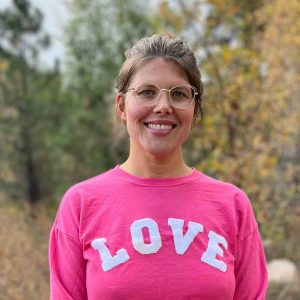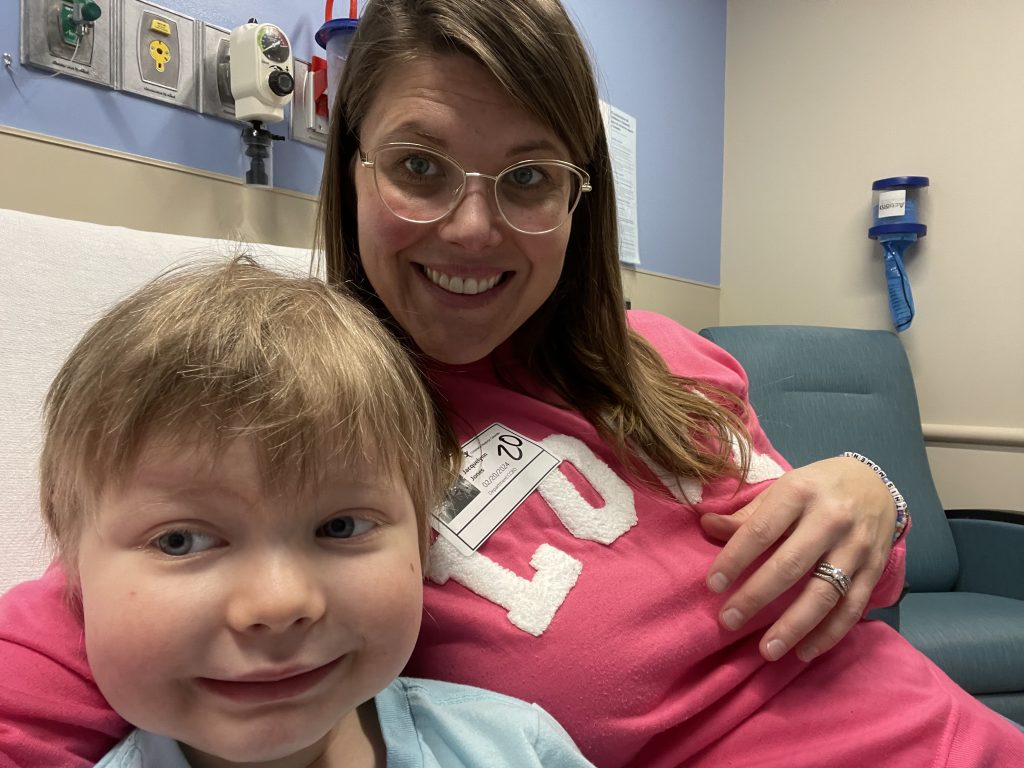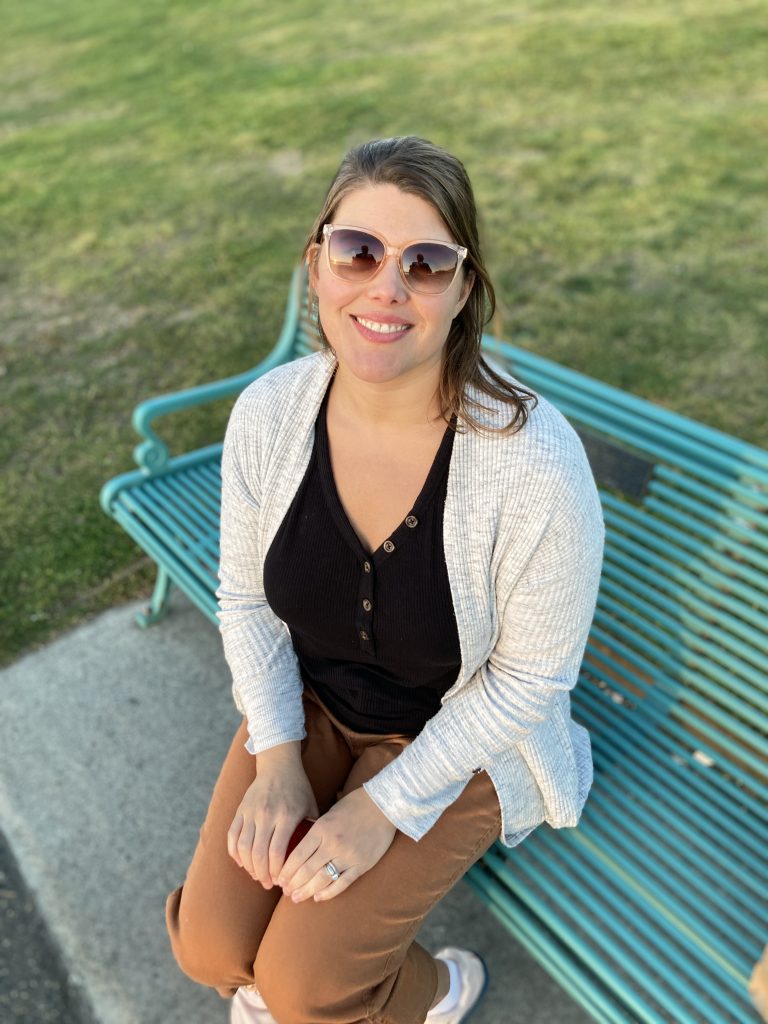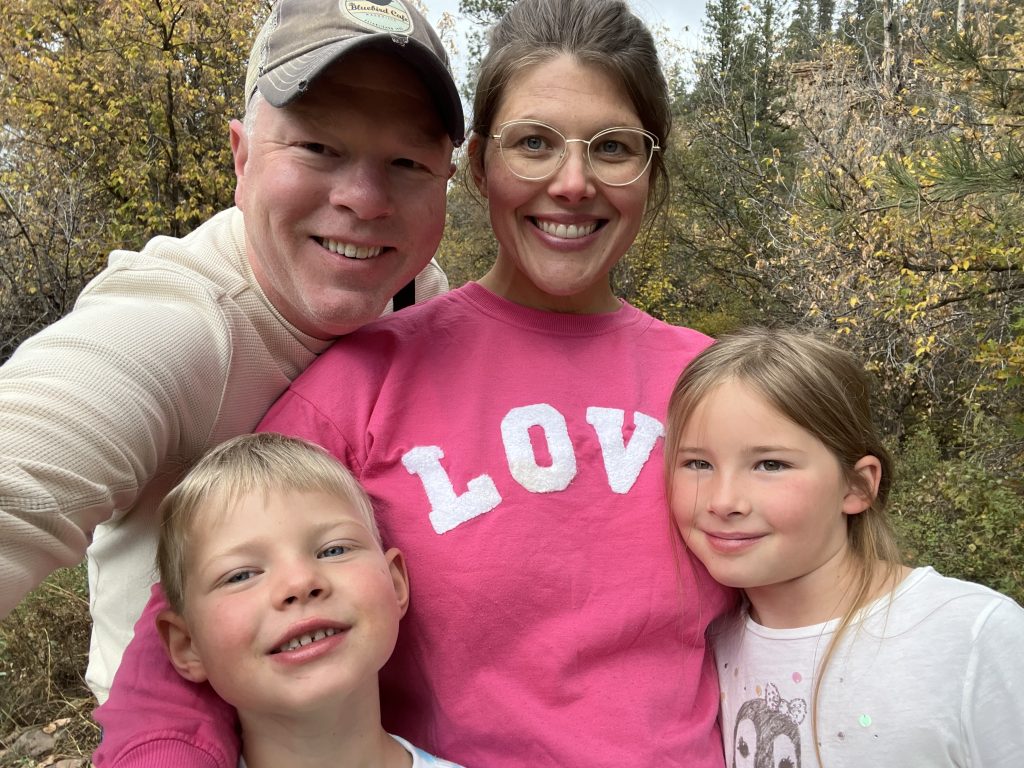It’s Okay to Not Be Okay
How a mother of a son with childhood cancer finds hope.

I like to say that it’s okay to not be okay.
It’s something that I have learned through my son’s journey with cancer, as well as the other struggles I’ve faced throughout my life. This perspective helps give me hope and grace for myself and others during challenges.
It has been shaped by deeply personal experiences.
My background
I was born in Arizona but grew up in Wichita, Kansas. I currently live with my supportive and amazing husband and our two children in Colorado Springs.
These days, I’m a homeschooling mom. Before that, I ran a cleaning business, worked as a waitress, sold essential oils and served as a social worker for children.
I have always loved connecting with kids, whether personally or professionally. My background helped prepare me to support my son, Addison, when he faced a surprising health crisis.

Something was off
During the pandemic, we moved to an agricultural town called Elk Grove, California. One year later, we moved to Spokane, Washington, another agricultural town. This is an important detail because we later found toxic amounts of BPA, mold poisoning, and heavy metals in our son’s system, which could all be tied to Roundup or another chemical that is sprayed on crops, as well as mold in our home. We lived very close to beautiful fields of canola flowers.
I noticed Addison having some balance problems and sought out a naturopath, who didn’t provide much insight other than he was sensitive to nearly all types of healthy food.
We visited a chiropractor specialist who assessed his reflexes, but this also proved to be a dead end.
Another strange symptom
In the summer of 2023, Addison began complaining that his tummy was hot. This was just another symptom I didn’t know the source of. We moved to Colorado in August, and Addison’s symptoms grew increasingly more concerning. He started falling often, couldn’t walk down the stairs without holding my hand, and was irritable, tired and lying on the ground and crying daily.
Eventually, I took him to a pediatrician because I thought he had sleep issues. She discovered through a physical exam that his spleen was enlarged. This was the source of the heat he had been complaining about. That led to an ultrasound and a phone call that would change my family’s life.
The phone call
“I really hate to be the one to tell you this,” the doctor said, “But Addison has leukemia. They are waiting for you at Denver Children’s Hospital emergency room, and you need to take him right away.”
I remember fearing that Addison was going to die—that I was going to lose my son. I went to a Panera Bread on the way to the ER to get us dinner and a woman asked me if I’d like some cookies for my children. I remember thinking, “Cookies? Cookies won’t make this all better.”
My dad died from lung cancer in 2019. He was the first person in my life to pass away from cancer, but soon it seemed like I was encountering cancer everywhere, including my son. And I feared for his life.
Deepest fears
Just before Addison’s diagnosis, I wrote in my journal and prayed, “God, it was so hard losing my dad. Please don’t let anything happen to my husband. Please don’t ever take away my kids.”
And I felt like my deepest fears were happening.
Not long after the phone call, we rushed Addison to the Children’s Hospital.
I remember watching the medical staff use a stuffed animal to show how they would put an IV in his vein. It felt manipulative, like they were trying to make something difficult not seem that hard.
I’ve always feared hospitals, because once you go there, they are in control. When I took Addison to the hospital, I felt like I was leading my little boy to the slaughter.
How I find hope, strength and peace against cancer
Finding peace through my son’s journey with cancer has been a long process. At first, I struggled with guilt. I had made a concerted effort to lead my family in a healthy lifestyle to avoid this type of situation, and I felt like I had failed my little boy. I blamed myself for what Addison was going through—believing I had somehow failed as a mom, that I should have known or should have done more to prevent it.
Being a person of faith, I also struggled with anger towards God. “Why would you want Addison to be in pain?” I asked.
Then, I felt guilty about being angry, because I thought we are not supposed to be angry with God. I learned this from books I read, but the lack of honesty strained our relationship.

My faith story
I grew up in a family that went to church, but I didn’t choose to follow Jesus until I was an adult.
I grew up in a broken family, and as an adult, I have struggled with anxiety and mental health.
When I had my daughter, I faced a dark period with post-partum depression. I felt like I didn’t want to live anymore and took some pills and wound up in the hospital.
Eventually, I went through a 12-step program called Celebrate Recovery. Besides helping me break free from self-medicating, it helped me unravel some obstacles I was facing around my childhood trauma and strengthened my relationship with God.
Growing up, I never felt supported by my dad. The difficulties of that relationship have made it challenging to trust God as my father. Being honest about these struggles has helped free me to receive God’s love, forgiveness and grace.
Okay to Not Be Okay
I like to say that it is okay to not be okay, because Jesus accepts us with our imperfections and loves us perfectly. I believe it’s the reason we need him so deeply. We are flawed people born into a broken world in need of his grace and love.
Even though I struggle with trusting God, especially during Addison’s journey, I want to be close to him and follow his will.
I want to help my kids have a better life than what I had growing up. I want them to experience God’s love and hope.
I found it helpful to be honest with God about my feelings. It’s okay to not have it all together, to struggle with anxiety or even be angry. It’s okay to not be okay.
This freedom has helped me experience God’s love and acceptance in profound ways; it’s also helped me to find hope amidst the struggle. One of my favorite verses is Romans 5:3-4: “We also glory in our sufferings, because we know that suffering produces perseverance; perseverance, character; and character, hope (NIV).”
More about Addison’s journey
Even with an improved relationship with God, I still struggled watching Addison go through cancer. In many ways, I’m still reeling from the trauma of the past 15 months.
I believe in healing naturally, so I wrestled with Addison going through traditional chemotherapy. He didn’t lose his hair completely, but the chemo affected his nervous system, and he still struggles with emotional outbursts and coordination issues.
Even though the process has been difficult, I have come to see Children’s Hospital as God’s divine intervention to save his life.
Today, Addison is in remission and will finish his treatment in November. I’m so grateful for how far he has come.

How I’ve changed
Going through this experience with my son’s childhood cancer has helped me see another side of life and meet people I never would have met otherwise. It was an honor to serve families in difficult situations and get to know them.
Through Addison’s leukemia journey, we have met many families whose children were not going to live or had lifelong disabilities.
Being able to hear their stories and identify with their struggles, to buy them gifts, make them a meal or share a word of encouragement, helped me find hope—that maybe my experience had a purpose beyond what I could see.
Advice for others
I think it’s okay to not want to go through cancer treatment and to not want to watch your child go through it.
It’s also okay to have emotional boundaries with people. This cancer journey is a sacred space, and you don’t have to share all the details of what you are feeling with everyone. I’ve taken a break from social media when I have needed to.
Be willing to share what you need with people, whether that is needing encouragement or even financial assistance. I’ve learned through this experience that a lot of people don’t know how to be helpful or what to say, so they just don’t talk to you.
Sit with yourself and say, “What do I really need? And how do I feel?” And then share this with others and especially ask God for help.
In the middle of sorrow, remember that God is at work, shaping your story with purpose and beauty. What feels hidden now will one day be seen as part of a divine design.
For more about how to begin a relationship with God, see Knowing God Personally.
For more help on your journey, see Find Hope Now.
I have a question or comment
How to find God’s hope, strength and peace

